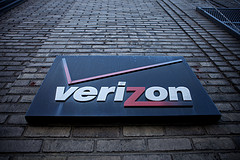Verizon Admits That Bill Shock Alert System Needs Work
Verizon Wireless has a system that’s meant to alert customers if their current voice, data or text usage patterns are likely to push them into having to pay overage charges, but the company admits that it has some reliability issues.
Consumer Reports’ Jeff Blyskal contacted Verizon after being hit with overage charges as high as $255, without receiving any prior warning.
When I contacted Verizon to ask if my failed alerts were aberrations, the company all but admitted they weren’t. … Verizon’s media relations department said that Verizon sends out “thousands of free courtesy alerts each month to customers who appear to be tracking above their voice usage.” However, “for a variety of reasons, we may not always send out alerts to every customer who goes over on their monthly plan. We continue to work on ways to enhance the system.”
Blyskal says that Verizon touted its alert system when it objected to government efforts to mandate tools that would help consumers avoid bill shock:
[Verizon’s] lobbyists insisted the requirement is unnecessary because Verizon and other carriers already give customers ample warnings. “Specifically, around the 20th day of each customer’s billing cycle, Verizon Wireless reviews each customer’s account to determine whether that customer has surpassed or is trending to surpass their voice, messaging, or data allowances for the month and, if so, sends the account holder a free text message,” the company’s lawyers told the FCC in comments filed in July, 2010.
The company also told the FCC that it makes robocalls to warn customers about possible overages if they don’t reply to text messages. Blyskal says he never received a warning call about his billing trends. While he points out that he has no experience with similar systems offered by other carriers, he says, “I think you can take Verizon’s word on its system being less than fail-safe.”
Verizon’s overage alert system needs work, spokesman admits [Consumer Reports News]
Want more consumer news? Visit our parent organization, Consumer Reports, for the latest on scams, recalls, and other consumer issues.


